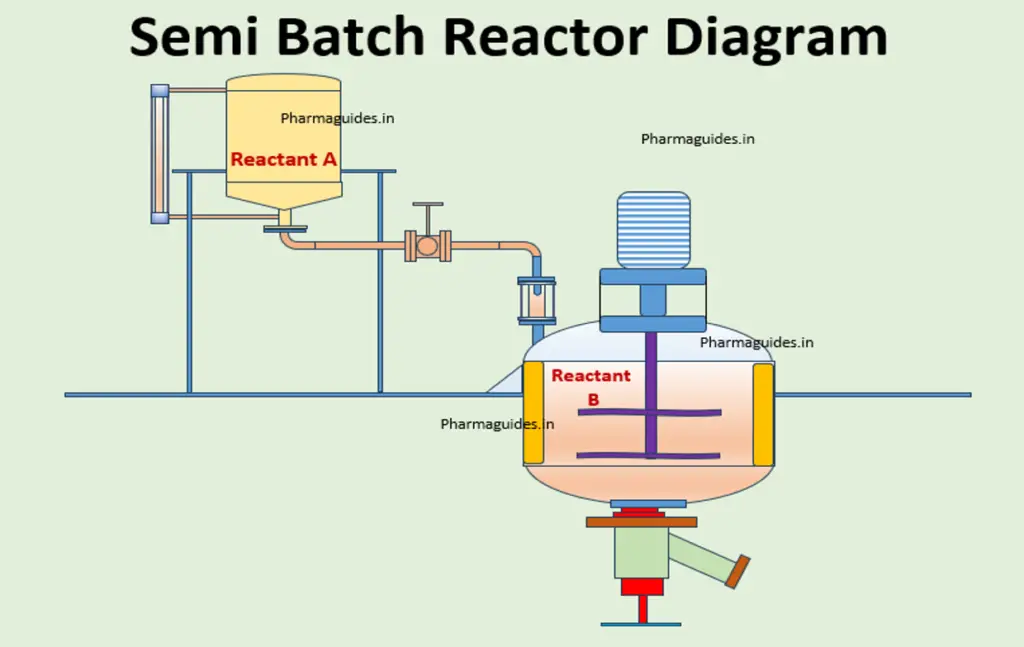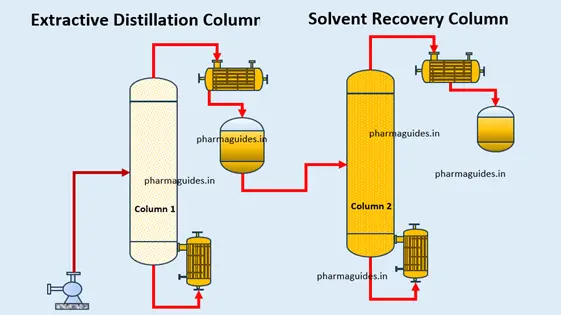types of chemical engineering | Petrochemical Engineering | Petroleum Engineering
Article Contents
Chemical Engineering | types of chemical engineering | Petrochemical Engineering | Petroleum Engineering

Types of Chemical Engineering :- Chemical engineering is a multidisciplinary field that applies principles of chemistry, physics, mathematics, and economics to efficiently use, produce, design, transport, and transform energy and materials. It plays a crucial role in various industries, including manufacturing, pharmaceuticals, energy, and environmental management. Chemical engineers work on processes and systems to develop and optimize the production of chemicals, fuels, materials, and pharmaceuticals.
They focus on safety, cost-effectiveness, and sustainability, utilizing their expertise in thermodynamics, kinetics, fluid dynamics, and mass transfer. Whether designing new processes, improving existing ones, or solving environmental challenges, chemical engineers contribute to technological advancements and innovation. The field continuously evolves to address global challenges, such as climate change, by developing cleaner and more efficient technologies. As problem solvers, chemical engineers bridge the gap between scientific principles and practical applications, driving advancements that shape our modern world.
Types of Chemical Engineering
Here are types.
Petroleum Engineering
Definition:
Petroleum engineering is a specialized branch of engineering that focuses on the exploration, extraction, and production of hydrocarbons, particularly oil and natural gas. This field plays a crucial role in the energy sector, aiming to efficiently recover valuable resources from beneath the Earth’s surface.
Scope:
The scope of petroleum engineering encompasses various stages of the oil and gas production process, including reservoir analysis, drilling design, well completion, and production optimization. Petroleum engineers utilize a multidisciplinary approach, combining geology, physics, and engineering principles to identify, evaluate, and extract hydrocarbon reserves. They work towards maximizing production yields, minimizing environmental impact, and ensuring the economic viability of energy resources.
Job Opportunities:
Petroleum engineers find employment in oil and gas companies, consulting firms, and research institutions. Job roles include reservoir engineer, drilling engineer, production engineer, and petroleum geologist. The industry offers opportunities to work in diverse environments, from onshore drilling operations to offshore platforms, and involves addressing challenges related to deep-sea exploration, unconventional resources, and environmental sustainability.
As global energy demand persists, petroleum engineers contribute to meeting this demand responsibly by developing advanced technologies, implementing efficient extraction methods, and exploring alternative and sustainable energy sources. They play a pivotal role in shaping the future of the energy industry.
Petrochemical Engineering

Petrochemical Engineering:
Definition:
Petrochemical engineering is a specialized branch of chemical engineering that focuses on the extraction, refining, and production of petrochemicals, primarily derived from crude oil and natural gas. This field plays a critical role in converting hydrocarbons into a diverse range of valuable products, including plastics, synthetic materials, and various industrial chemicals.
Scope:
The scope of petrochemical engineering spans the entire lifecycle of petrochemical production. Petrochemical engineers are involved in processes such as refining crude oil, designing and optimizing chemical processes, and ensuring the quality and safety of the end products. They work on developing innovative technologies for sustainable and efficient petrochemical production while addressing environmental concerns associated with the industry.
Job Opportunities:
Petrochemical engineers find employment in industries related to oil and gas, chemicals, and manufacturing. Job roles may include process engineer, chemical engineer, petrochemical plant manager, or research and development engineer. Given the global demand for petrochemical products, professionals in this field contribute to ensuring a stable supply of essential materials for various industries.
As the petrochemical industry continues to evolve, petrochemical engineers play a pivotal role in advancing technologies, reducing environmental impact, and addressing challenges associated with resource management, making significant contributions to the modern industrial landscape.
Process Engineering
Definition:
Process engineering is a specialized field within chemical engineering that focuses on the design, optimization, and management of industrial processes for the production of various goods. It involves applying principles of chemistry, physics, and engineering to transform raw materials into valuable products efficiently and economically.
Scope:
The scope of process engineering is extensive, covering industries such as chemicals, petrochemicals, pharmaceuticals, and food processing. Process engineers analyze and develop processes, considering factors like reaction kinetics, thermodynamics, and mass transfer. They design equipment, develop control strategies, and work on troubleshooting to ensure the smooth operation of production processes. Sustainability and environmental considerations are increasingly integral to the scope, with a focus on minimizing resource use and environmental impact.
Job Opportunities:
Process engineers find employment in a variety of industries, including manufacturing, energy, and biotechnology. Job roles may include process engineer, production engineer, plant manager, or operations manager. With the advent of advanced technologies and automation, process engineers also play a key role in implementing and optimizing digital solutions for process control and monitoring.
Process engineering is essential for enhancing the efficiency, safety, and sustainability of industrial production processes. Professionals in this field contribute to advancements in technology and innovation, ensuring the seamless and responsible transformation of raw materials into finished products.
Materials Engineering
Materials engineering is a specialized discipline within the broader field of engineering that focuses on the design, development, and application of materials with specific properties for various industries.
Definition:
Materials engineering is a specialized field of engineering that involves the study, development, and application of materials with specific properties for various industries. This discipline focuses on understanding the relationships between the composition, structure, processing, and properties of materials to design and optimize their performance in different applications.
Scope:
The scope of materials engineering is broad and encompasses a wide range of materials, including metals, polymers, ceramics, and composites. Materials engineers work on designing new materials with enhanced properties, improving existing materials, and selecting the most suitable materials for specific applications. This field extends to industries such as aerospace, electronics, healthcare, and renewable energy, contributing to technological advancements and innovations.
Job Opportunities:
Materials engineers have diverse career opportunities in research, development, and manufacturing. They may work in industries such as automotive, electronics, energy, and healthcare, as well as in research institutions and government agencies. Job roles include materials scientist, metallurgist, quality control engineer, and product development engineer. With a growing emphasis on sustainable and advanced materials, materials engineers are at the forefront of developing solutions for challenges related to environmental impact, resource efficiency, and product performance.
Materials engineering plays a crucial role in shaping the future of technology and industry by providing the materials needed for the design and production of cutting-edge products and applications.
Environmental Engineering
Environmental engineering articles address sustainability challenges, pollution control, and waste management. Chemical engineers contribute to the development of green technologies, seeking innovative solutions to reduce the environmental impact of industrial processes.
Definition:
Environmental engineering is a branch of engineering that applies scientific and engineering principles to protect and improve the environment. It involves the development and implementation of technologies and solutions to address environmental issues, including pollution control, resource conservation, and sustainable development.
Scope:
The scope of environmental engineering is vast and encompasses various areas. This includes water and air quality management, waste treatment and disposal, environmental impact assessment, renewable energy development, and the remediation of contaminated sites. Environmental engineers work across industries to ensure compliance with environmental regulations, promote eco-friendly practices, and contribute to the overall well-being of ecosystems.
Job Opportunities:
Environmental engineering offers diverse career opportunities in both the public and private sectors. Environmental engineers can work for government agencies, consulting firms, research institutions, and industries. Job roles may involve designing and implementing pollution control systems, assessing environmental impacts of projects, managing waste treatment facilities, or developing sustainable energy solutions. With a growing global emphasis on sustainability, environmental engineers are increasingly in demand to address climate change, water scarcity, and other pressing environmental challenges.
As stewards of the environment, environmental engineers play a crucial role in creating a balance between human activities and the preservation of natural resources, making it a field of great significance in the modern world.
Bioprocess Engineering
Bioprocess Engineering:
Definition:
Bioprocess engineering is a specialized field within chemical engineering that focuses on the use of biological systems and organisms to produce various products, such as pharmaceuticals, biofuels, and specialty chemicals. It involves the design, optimization, and management of processes that utilize living cells or their components for the production of valuable compounds.
Scope:
The scope of bioprocess engineering extends to a variety of applications, including the cultivation of microorganisms, fermentation processes, and the extraction of valuable biomolecules. Bioprocess engineers work on optimizing conditions for cell growth, developing efficient bioreactor systems, and ensuring the scalability of processes from laboratory to industrial scale. The field integrates principles from biology, microbiology, and engineering to harness the capabilities of living organisms for industrial production.
Job Opportunities:
Bioprocess engineers find opportunities in industries such as pharmaceuticals, biotechnology, and food production. Job roles may include process development scientist, bioprocess engineer, fermentation specialist, or downstream processing engineer. With a focus on sustainability, bioprocess engineering contributes to the development of green technologies and the production of bio-based products.
As the demand for sustainable and renewable solutions increases, bioprocess engineers play a crucial role in developing and optimizing processes that leverage the biological capabilities of living organisms to address challenges in various industrial sectors.
Energy Engineering
Energy Engineering:
Definition:
Energy engineering is a specialized field of engineering that focuses on the generation, distribution, and utilization of energy. This interdisciplinary field encompasses various sources of energy, including fossil fuels, renewable energy, and emerging technologies, with the goal of optimizing energy systems for efficiency, sustainability, and environmental impact.
Scope:
The scope of energy engineering spans a wide range of activities, including the design and optimization of power generation systems, energy conservation, renewable energy technologies, and energy storage solutions. Energy engineers work on projects related to solar power, wind energy, bioenergy, and energy-efficient building systems. They also contribute to developing technologies for smart grids and improving the overall efficiency of energy production and consumption.
Job Opportunities:
Energy engineers find opportunities in industries related to power generation, utilities, renewable energy companies, and consulting firms. Job roles may include energy analyst, renewable energy project manager, power systems engineer, or energy efficiency consultant. As global concerns about climate change and the transition to sustainable energy sources intensify, the demand for energy engineers continues to grow.
Energy engineering professionals play a vital role in shaping the future of the energy landscape by contributing to the development and implementation of cleaner and more sustainable energy solutions, ultimately addressing the global challenge of transitioning to a low-carbon and environmentally friendly energy system.
Safety and Risk Management
Safety and Risk Management:
Definition:
Safety and risk management is a specialized field focused on identifying, assessing, and mitigating potential hazards and risks within various industries. It involves the development and implementation of strategies to ensure the safety of individuals, protect assets, and maintain the integrity of operations. This field is crucial for preventing accidents, injuries, and environmental incidents.
Scope:
The scope of safety and risk management encompasses a wide range of activities, including hazard analysis, safety training, emergency response planning, and the development of safety protocols. Safety professionals work to create a culture of safety within organizations, ensuring compliance with regulations and standards. They assess the potential risks associated with processes, equipment, and workplace environments to proactively address and minimize potential threats.
Job Opportunities:
Safety and risk management professionals find opportunities in industries such as manufacturing, construction, healthcare, and oil and gas. Job roles may include safety engineer, risk analyst, safety manager, or environmental health and safety specialist. These professionals collaborate with employees, management, and regulatory authorities to create and maintain safe and compliant working environments.
As organizations increasingly recognize the importance of safety in operations, the demand for safety and risk management professionals continues to grow. Their role is essential in preventing accidents, protecting human lives, and ensuring the sustainability of businesses in a complex and dynamic operational landscape.
Nanotechnology
Nanotechnology:
Definition:
Nanotechnology is a multidisciplinary field that involves manipulating matter at the nanoscale, typically at dimensions less than 100 nanometers. It encompasses the design, fabrication, and application of structures, devices, and systems at the molecular and atomic levels. Nanotechnology aims to exploit unique properties that emerge at this scale for various technological advancements.
Scope:
The scope of nanotechnology spans diverse areas, including materials science, physics, chemistry, biology, and engineering. Nanotechnologists work on creating and manipulating nanomaterials, nanodevices, and nanosystems with specific properties for applications in medicine, electronics, energy, and materials. This field also explores fundamental scientific principles related to quantum mechanics and surface interactions at the nanoscale.
Job Opportunities:
Professionals in nanotechnology find opportunities in research institutions, universities, and industries such as electronics, healthcare, and materials science. Job roles may include nanotechnologist, research scientist, nanomaterials engineer, or nanodevice designer. Nanotechnology experts contribute to innovations like nanomedicine, nanoelectronics, and nanomaterials with applications in various industries.
As technology continues to advance, nanotechnology plays a crucial role in developing cutting-edge solutions that harness the unique properties of materials at the nanoscale. The interdisciplinary nature of nanotechnology fosters collaboration between scientists and engineers, driving progress in multiple fields and paving the way for transformative technological breakthroughs.
Biomedical Engineering
Biomedical Engineering:
Definition:
Biomedical engineering is an interdisciplinary field that integrates principles of engineering, biology, and medicine to develop technologies and solutions that improve healthcare and medical practices. This field focuses on applying engineering techniques to understand, diagnose, and treat medical conditions, as well as enhance the overall quality of healthcare delivery.
Scope:
The scope of biomedical engineering is broad, covering areas such as medical imaging, biomaterials, biomechanics, medical devices, and tissue engineering. Biomedical engineers work on designing and improving medical equipment, developing diagnostic tools, and advancing technologies for drug delivery and medical treatments. They also contribute to research aimed at understanding and solving complex biological and medical problems.
Job Opportunities:
Biomedical engineers find employment in hospitals, research institutions, medical device companies, and pharmaceutical firms. Job roles may include biomedical engineer, clinical engineer, biomaterials scientist, or medical imaging specialist. With a growing emphasis on personalized medicine and technological innovations in healthcare, biomedical engineers play a vital role in translating scientific discoveries into practical applications for patient care.
The interdisciplinary nature of biomedical engineering positions professionals to be at the forefront of medical advancements, addressing challenges in healthcare through the development of innovative technologies and solutions that benefit both patients and healthcare providers.
Food Engineering
Food Engineering:
Definition:
Food engineering is a specialized branch of agricultural and biological engineering that applies engineering principles to the production, processing, packaging, and distribution of food. It involves the application of various engineering disciplines to ensure the safety, quality, and efficiency of food production processes.
Scope:
The scope of food engineering covers a wide range of activities, including the design and optimization of food processing methods, development of food preservation technologies, and improvement of food packaging systems. Food engineers work on enhancing the nutritional content, taste, and shelf life of food products while maintaining safety standards. They also contribute to innovations in food production techniques, such as the development of sustainable and environmentally friendly practices.
Job Opportunities:
Food engineers find opportunities in the food and beverage industry, research institutions, and government agencies related to food safety. Job roles may include food process engineer, quality control manager, food technologist, or research and development scientist. Food engineers play a critical role in ensuring the efficiency and safety of food production processes and contribute to the development of new and improved food products. Chemical Engineering.
With the growing emphasis on sustainable and innovative approaches to food production, food engineers are integral to addressing global challenges related to food security, safety, and quality while meeting the increasing demands of a growing population, Chemical Engineering.
Nuclear Engineering
Nuclear Engineering:
Definition:
Nuclear engineering is a specialized field of engineering that focuses on the utilization of nuclear energy and radiation. This interdisciplinary field involves the study, design, and application of systems and processes that harness nuclear reactions for various purposes, including power generation, medical imaging, and industrial applications.
Scope:
The scope of nuclear engineering encompasses areas such as nuclear power plants, nuclear reactors, radiation protection, and nuclear medicine. Nuclear engineers work on the design, development, and maintenance of nuclear systems, as well as addressing safety and environmental concerns associated with nuclear technologies. They may also be involved in nuclear research, exploring new methods for energy production and advancing nuclear technologies, Chemical Engineering.
Job Opportunities:
Nuclear engineers find employment in industries related to power generation, healthcare, and research institutions. Job roles may include nuclear engineer, reactor physicist, radiation protection specialist, or nuclear scientist. Nuclear engineers play a crucial role in ensuring the safe and efficient use of nuclear energy, contributing to the generation of electricity, medical diagnostics, and industrial applications, Chemical Engineering.
As the demand for clean and sustainable energy sources grows, nuclear engineers continue to be at the forefront of developing technologies that harness nuclear power responsibly, emphasizing safety, environmental stewardship, and innovation in the field of nuclear engineering. Chemical Engineering.
Textile Engineering
Textile Engineering:
Definition:
Textile engineering is a branch of engineering that involves the application of scientific and engineering principles to the design and manufacturing of textiles and textile products. It encompasses the entire textile production process, from the creation of fibers and yarns to the development of fabrics and the production of finished goods, Chemical Engineering.
Scope:
The scope of textile engineering includes various aspects such as fiber science, yarn manufacturing, fabric construction, dyeing and finishing, and the development of textile machinery. Textile engineers work on optimizing processes for efficiency, quality, and sustainability. They also contribute to the development of innovative materials and technologies within the textile industry, addressing aspects like performance textiles, smart textiles, and sustainable practices, Bioprocess Engineering.
Job Opportunities:
Textile engineers find employment in textile mills, manufacturing companies, research institutions, and fashion industries. Job roles may include textile engineer, process engineer, quality control manager, or product development specialist. Textile engineers play a crucial role in ensuring the quality and functionality of textiles, meeting consumer demands, and contributing to advancements in textile technology, Bioprocess Engineering, Bioprocess Engineering.
As the textile industry evolves to meet changing consumer preferences and environmental considerations, textile engineers are essential in driving innovations that lead to the development of new and improved textiles, processes, and products in a sustainable and technologically advanced manner.
What are 3 types of chemical engineering?
Chemical engineering encompasses various specialized fields. Three prominent types include Process Engineering, Materials Engineering, and Environmental Engineering. Process Engineering focuses on optimizing industrial processes, Materials Engineering involves the development of advanced materials, and Environmental Engineering addresses sustainability challenges and pollution control.
Which field is best for chemical engineers?
The “best” field for a chemical engineer depends on personal interests and career goals. Process Engineering is versatile and widely applicable, Materials Engineering involves innovative material development, and Environmental Engineering aligns with sustainability. Bioprocess Engineering, Energy Engineering, and Nanotechnology are also notable fields offering diverse opportunities.
What is the branch of chemical engineering?
Chemical engineering is a branch of engineering that applies principles of chemistry, physics, mathematics, and economics to efficiently use, produce, design, transport, and transform energy and materials.
What are 5 things chemical engineers do?
Chemical engineers engage in diverse tasks, including designing and optimizing industrial processes, developing new materials, addressing environmental challenges, managing safety and risk, and applying computational modeling for analysis and innovation, Types of Chemical Engineering.
Which is the top 1 engineering course?
Determining the “top” engineering course is subjective, as it depends on individual interests and industry demands. However, disciplines such as Computer Science and Electrical Engineering are often considered high in demand, given the current emphasis on technology, Types of Chemical Engineering.
What is the highest paid chemical engineer?
Salaries for chemical engineers vary based on factors like experience, industry, and location. In industries like petroleum and pharmaceuticals, experienced chemical engineers with advanced degrees tend to command higher salaries, with the potential for leadership roles and specialized positions contributing to higher earnings.













